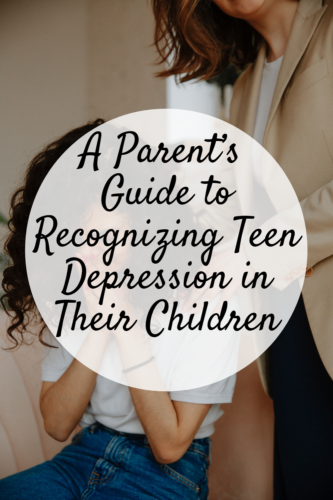
For many parents, it’s not always easy to differentiate normal teenage growing pain from depression. Still, it is vital you learn to recognize the symptoms. That’s the only way you may be able to help your loving child. That’s why health2delivery healthcare experts have created this guide to assist you in your quest.
Learning to understand teen depression
This age has seen an unprecedented increase in teen mental problems than ever in history. Youngsters that are supposed to be our shining light for the future are instead fighting phantoms in their own minds. Whether we want to believe it or not, the numbers speak for themselves, and they are extremely worrying. In most cases, depression is very much treatable. But teens rarely receive the necessary help because it is hard to detect when they get depressed.
Teen depression is not like moodiness. Instead, it is a critical issue for the upcoming generation. However, with true love, knowledge, and care, you can help your kids become better and get back to living a joyful life with vigor.
How to tell if your teenage kid is depressed?
Almost all teens occasionally act out or have bouts of a bad mood, but depression is different from moodiness. Depression eats away what makes you you and leaves an empty and angsty husk you can barely recognize. Nothing but sadness, anger, grief, and despair become evident in the personality. In such circumstances, most parents are left floundering for answers and strategies that may let them help their kids.
Many teenagers rebel or exhibit unhealthy behaviors. In fact, such moodiness becomes something to be expected when kids reach their teenage. But most of the acting-out symptoms are usually indicative of depression in kids. You can look for the following symptoms to recognize if your kid is depressed;
- A predisposition towards negative mood
Many teenagers, both boys, and girls, often cry when hopelessness threatens to overwhelm them. However, they may not shed tears in anyone’s presence but appear sad instead. Frequent irritability, agitation, anger, and angst are some of the most prominent symptoms of depression in your teenager.
- School problems
Depression often causes lethargy and concentration difficulties in teenagers. They find it hard to absorb a lesson, maintain good grades, and do homework. Even a good student stops caring about falling grades when depressed.
- Lack of interest in extracurricular activities
Depressed teenagers start showing less interest in certain activities they used to enjoy after school. For example, they may quit being part of a sports team and even withdraw from engaging with their friends and family.
- Running away from home
Teenagers that feel trapped or depressed often run away from home or threaten to run away. This kind of escapist behavior is indicative of depression.
- Substance abuse
Unfortunately, it is remarkably easy for teenagers to access alcohol and legal or illegal drugs nowadays. They may take drugs to self-medicate their depression. However, substance abuse only makes the symptoms worse.
- Low self-worth
Teenagers with depression have evident self-esteem issues. They overwhelmingly focus on the negative traits, like shame, failure, ugliness, hatred, self-loathing, body-loathing, and unworthiness.
- Digital addiction
Depressed teenagers are often seen with their cellphones or other electronic devices in their hands. They seek the virtual world to escape their problems in the real world. However, excessive smartphone usage, even for social media, increases loneliness, contributing to depression.
- Recklessness
Teenagers with depression often engage in reckless or high-risk behavior, like unsafe sex, binge drinking, rash driving, stunt pulling, etc. This kind of behavior may also indicate suicidal ideation in addition to depression.
- Predisposition towards violence
Generally, depressed teenagers start becoming increasingly aggressive and violent. They respond to bullying, taunting, or even stares with overwhelming hostility. This behavior is especially evident in boys that are a frequent target for bullies.
- Changes in sleep and diet
When teenagers become depressed, they may find it hard to get out of bed. As a result, some become increasingly prone to spending time away lying in bed, while others become insomniacs. They may also start showing changes in their eating behavior by eating more or less than usual.
Depression changes people. Even if your teenager tries to hide symptoms from you and portray him or herself as any other edge teenager, you can simply look for the indications above to find if they have depression. If such signs are present, do not hesitate to take your kid to the doctor for proper diagnosis and get some medical help. If you need help. Call an outpatient drug rehab centers now and talk to someone to overcome your depression.
If depression gets too worse and is allowed to fester, the recklessness in teenagers’ behavior may become increasingly self-destructive. They may even show suicidal tendencies. You love your kids; there’s no doubt about that. Therefore, seek help from friends and family to keep an eye on your kid and pull them out of their depressive state. Also, get medical help from a mental healthcare expert.





vickie Belk couturier says
really good tips,with teenage grandchildren,Im keeping my eyes on them as well
Aaron Cotton says
This post really helped me in recognizing signs of depression in children.